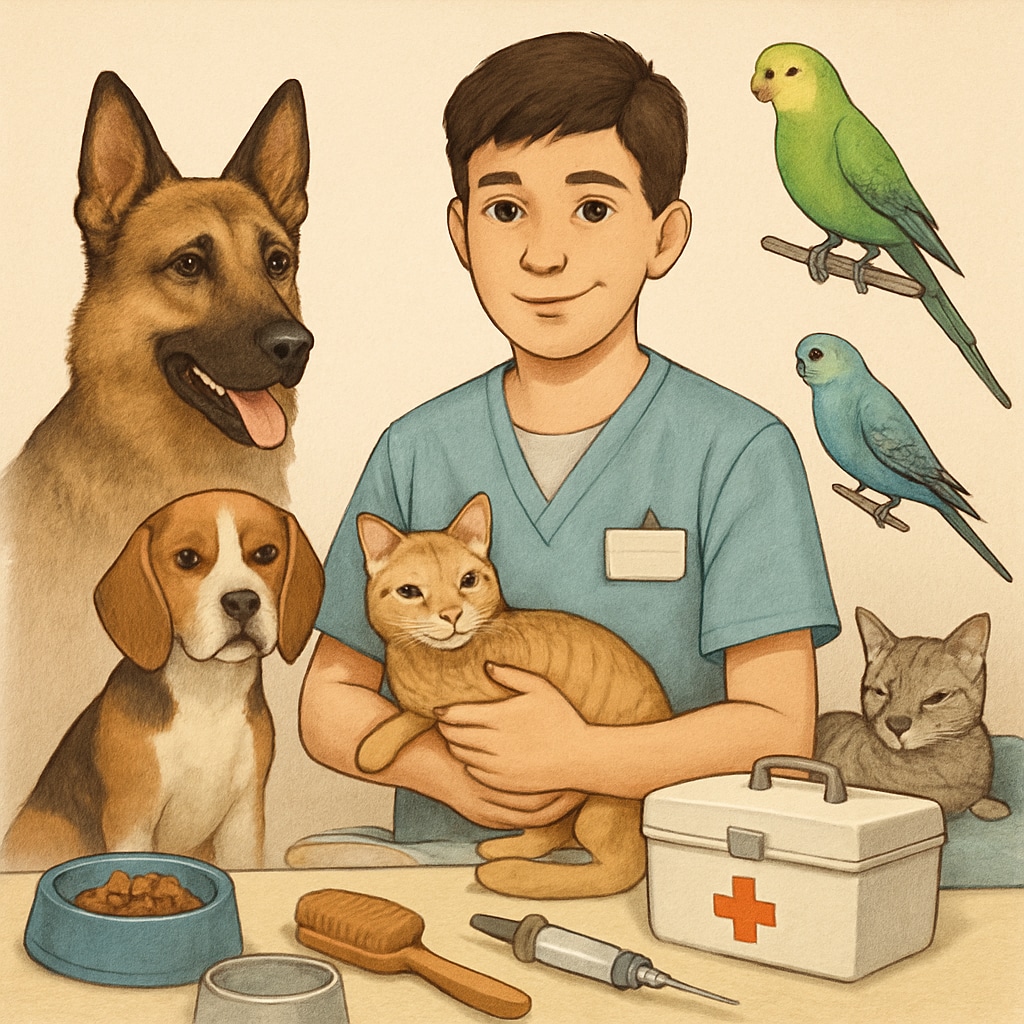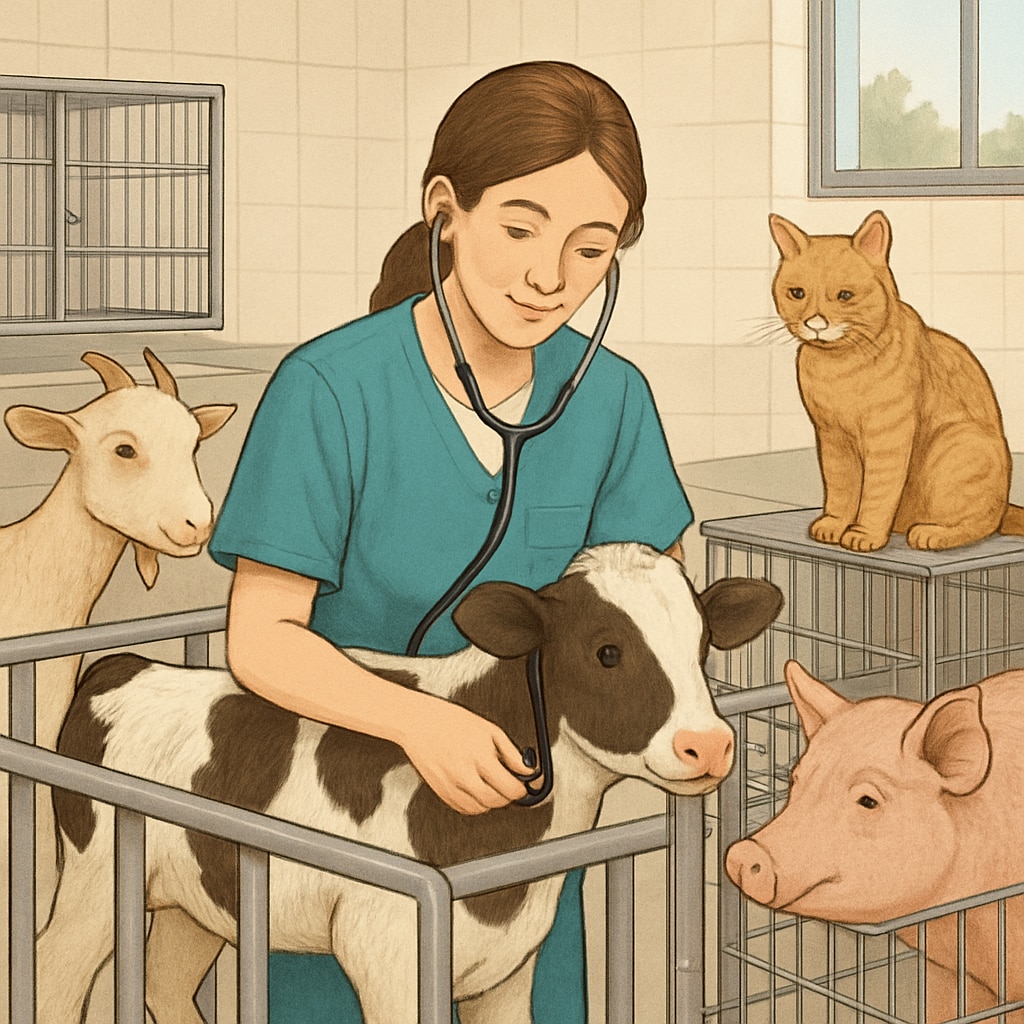For many young people in the UK, the lack of General Certificate of Secondary Education (GCSE) qualifications can impose significant limitations on their career prospects and educational opportunities. This issue is particularly evident in fields like animal work, where specific certifications are often prerequisites for employment. The educational system’s emphasis on GCSEs creates challenges and exacerbates the education困境 for those who have not met this benchmark, leaving them struggling to access their dream careers. This article explores the barriers posed by the absence of GCSE qualifications and discusses potential pathways to overcome these hurdles.
Understanding the Role of GCSEs in Career Development
GCSEs serve as a foundational qualification within the UK education system, typically taken by students aged 14–16. They are not only a measure of academic ability but also a key requirement for most advanced educational programs and many entry-level jobs. In fields such as animal work, employers often require GCSEs in core subjects like English, Math, and Science to ensure candidates possess a basic level of competence and knowledge.
However, this heavy reliance on GCSE results can inadvertently marginalize individuals who, for various reasons, may not have succeeded in traditional schooling. For instance, a 19-year-old aspiring to work with animals might find themselves excluded from vocational courses or apprenticeships simply due to the absence of these qualifications. This rigid system fails to consider alternative measures of aptitude or the potential for individuals to excel in hands-on, practical environments.

The Educational困境: Are GCSEs the Only Measure of Success?
The strict reliance on GCSEs as a gateway to higher education and career opportunities raises questions about the adequacy of the current evaluation system. In many cases, students who struggle with traditional exams may still possess the skills, passion, and drive needed to excel in their chosen fields. For example, working with animals requires qualities such as empathy, patience, and observational skills—traits that cannot be measured by standardized tests.
Furthermore, systemic factors such as learning disabilities, personal challenges, or lack of support during school years may prevent young people from achieving their GCSEs. These challenges highlight the need for a more flexible and inclusive approach to assessing potential and providing opportunities for skill development.
Alternative Pathways to Overcome the GCSE Barrier
While the lack of GCSE qualifications can seem like an insurmountable obstacle, there are alternative pathways that can help individuals achieve their goals. Here are some practical solutions:
- Functional Skills Qualifications: These are equivalent to GCSEs in core subjects like English and Math and are often accepted by employers and educational institutions.
- Vocational Training: Programs focused on practical skills, such as animal care courses, can provide hands-on experience and certification without requiring GCSEs.
- Apprenticeships: Many apprenticeship programs offer on-the-job training and include the opportunity to earn qualifications while working.
- Community College Courses: Colleges often provide “Access to Higher Education” courses designed for those without traditional qualifications.
- Supportive Policies: Governments and educational bodies can implement policies to create more inclusive pathways for students, such as recognizing diverse forms of assessment.
These alternatives offer hope and opportunities for young people who may feel left behind by the traditional education system.

Creating a More Inclusive Educational System
To address the limitations posed by the current reliance on GCSE qualifications, educational institutions and policymakers must prioritize inclusivity and adaptability. This involves recognizing the diverse strengths and learning styles of students and creating systems that value practical skills and alternative forms of assessment. For instance:
- Expanding access to functional skills programs and vocational training.
- Providing tailored support for students with learning disabilities or other challenges.
- Promoting awareness among employers about the value of non-traditional qualifications.
By fostering a more inclusive approach, the education system can empower young people to pursue their passions and contribute to fields where they can make a meaningful impact.
In conclusion, while the absence of GCSE qualifications may initially seem like an insurmountable barrier, alternative pathways and systemic changes can help young people overcome these challenges. For those aspiring to work with animals or in other specialized fields, it is crucial to explore vocational programs, apprenticeships, and functional skills courses as viable options. By breaking the education困境, we can ensure that every individual has the opportunity to achieve their career dreams.
Readability guidance: This article uses short paragraphs, clear headings, and lists to enhance readability. Transition words such as “however,” “therefore,” and “for example” are used to ensure smooth flow. The proportion of passive voice and long sentences has been kept minimal to maintain clarity.


